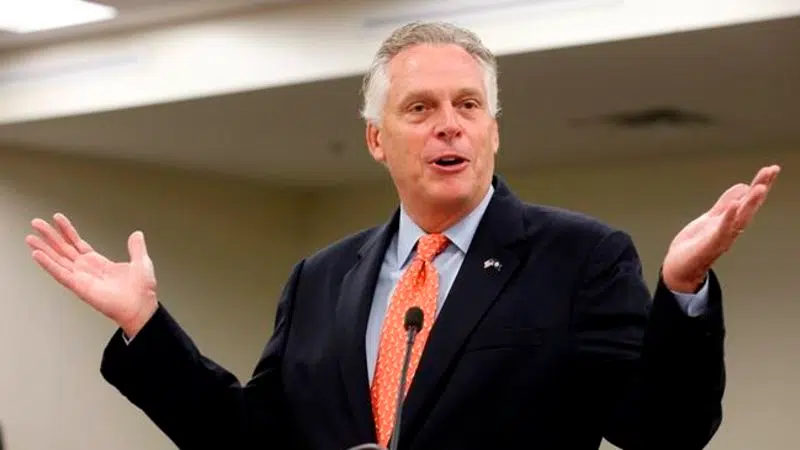
AP sources: Ex-Virginia Gov. McAuliffe to rule out 2020 run
RICHMOND, Va. — Former Virginia Gov. Terry McAuliffe won’t run for president in 2020, according to two people familiar with calls he made Wednesday to allies.
McAuliffe had flirted with a Democratic presidential run for months, popping up in early voting states late last year and campaigning with candidates in Iowa and New Hampshire, but ultimately decided against mounting a bid, according to the two people, who spoke to The Associated Press on condition of anonymity to avoid pre-empting McAuliffe’s announcement.
Crystal Carson, a representative for McAuliffe, didn’t immediately respond to a request for comment.


